The Men of Hammacher Schlemmer
Are they really happy?
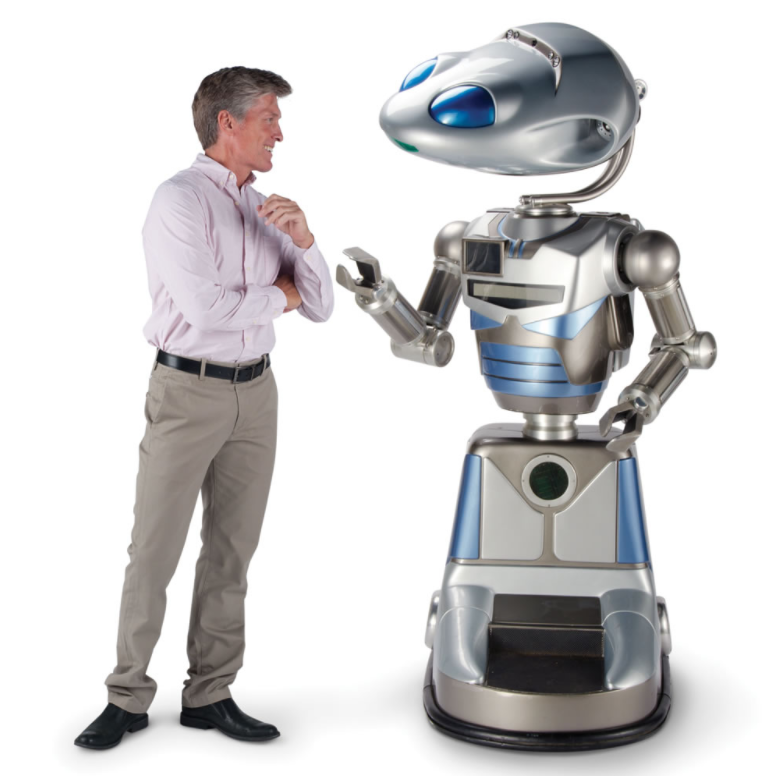
From its founding as a hardware store on the Bowery in 1848, through its underground days as a minter of “copperhead” tokens during the Civil War coin shortage, through its twentieth-century expansion into gadgets and novelties, Hammacher Schlemmer has never stood still. The company’s “brand” is its very lack of one, the laughable variety and incongruity of its thousands of products. Along with its downmarket cousins SkyMall and the Sharper Image, its name has become a byword for the ludicrous contraption, the elaborate gadget posing as a basic necessity.
Yet for all its reputation as an emporium of the ridiculous, the images in the Hammacher Schlemmer online catalog are often dully direct, unadorned shots of the product for sale. Even when the items are as odd as the Golf Cart Hovercraft or the Levitating Lamp, in situ, they blend in with other, ordinary objects of home and office.

But when depicting products that require human interaction, these photographs burst into life. And usually, that life comes in the form of lone men, operating or holding or transporting the product, displaying its uses with evident joy. Here is the man piloting his Voice Controlled Drone; the man hefting the Pepperphile’s Peppermill; the man reclining blissfully with his Stress Reducing Mind Spa. Men, it seems, are the heroes of the Hammacher Schlemmer story of invention and discovery, the dreamers of its dreams. Women also appear in the company’s catalog, of course. But all too expectedly, their wares tend toward the personal and domestic: see the Cordless Neck and Shoulder Heat Wrap or the Planter and Birdfeeder Pulley System. The crazed thrill of discovery, the spark of obsession, the delight in the new, are, at least in the Hammacher Schlemmer imaginary, male properties.
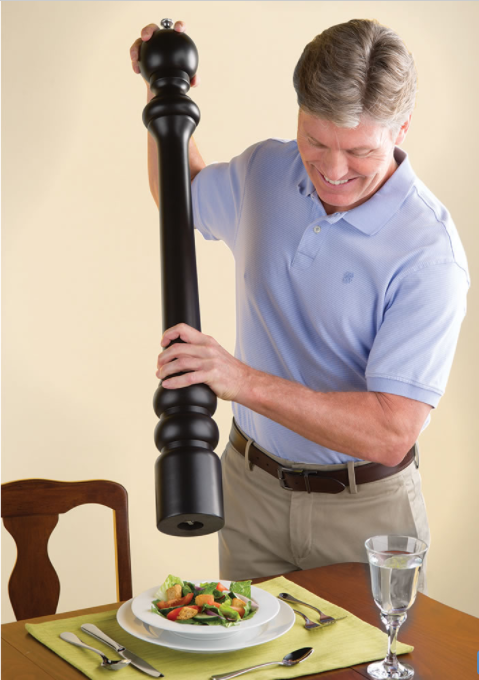
And specifically, dad properties: so-called dad music, dad bods, and dad humor have become cheap memes, but the men of Hammacher Schlemmer make vivid the socially specific reality implied but obscured by this prevailing idea of the “dad.” These men are uniformly and unmistakably suburban, white, middle-aged, middle-class. From their backyard pools to their khaki slacks, they embody the frumpy maturity and modest affluence that, probably not for better, have become synonymous with contemporary fatherhood.
And true to this archetype of “dad” as lovingly goofy and corny, the men seem to know only one emotion: delight. People in advertisements are always happy, but these men’s wide smiles and warm eyes speak to a deeper dad satisfaction — the pleasure of the sound purchase. The wise investment. Planning, providing, and prospering. But are they really happy?
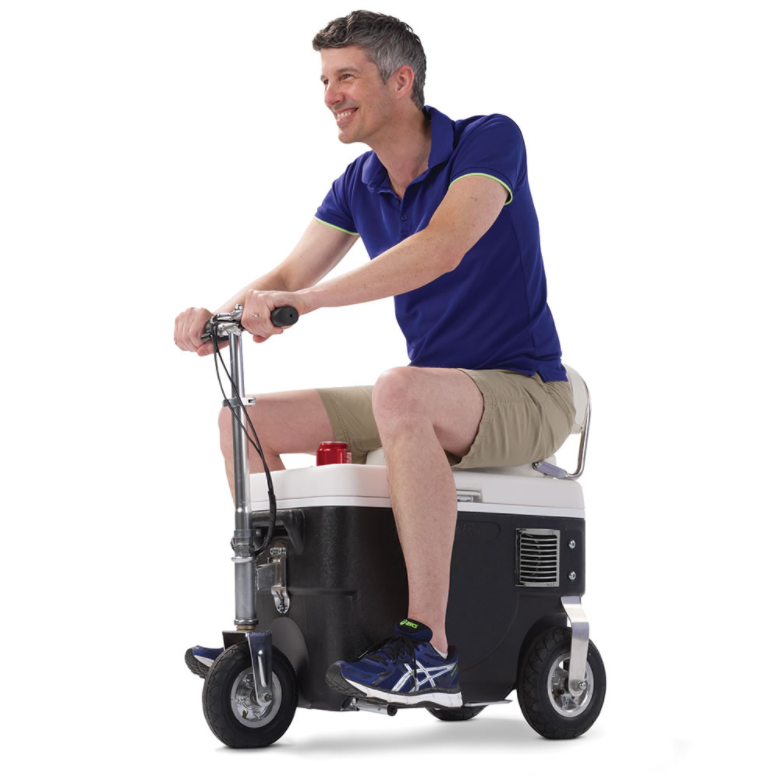
Looked at more closely, the men of Hammacher Schlemmer seem out of time and place, unmoored from physical reality. In maybe half of these images, the men inhabit no place at all: the setting is an empty white expanse, an abyss that blends into the surrounding blankness of the webpage or catalog spread. Despite his boyish grin, the man in the navy polo shirt and chino shorts cruises his 12 MPH Cooler into nothingness; the man in the light pink button-down and khaki pants sharing a laugh with his Celebrity Robotic Avatar seems suspended in a Beckettian vacuum. And even when the photographs depict “real” places, their details often look flattened or fake — oversaturated, blurred, subtly unconvincing. In a scene showing the Giant Rubber Duckie, man and duck have been pasted onto a too-blue pool in a too-perfect McMansion backyard. Rather than reality, it’s like we’re seeing the man’s duckie dream, the vision that moved him to pay $229.95 plus shipping (“We regret,” the product page announces, “that this item is no longer available”).
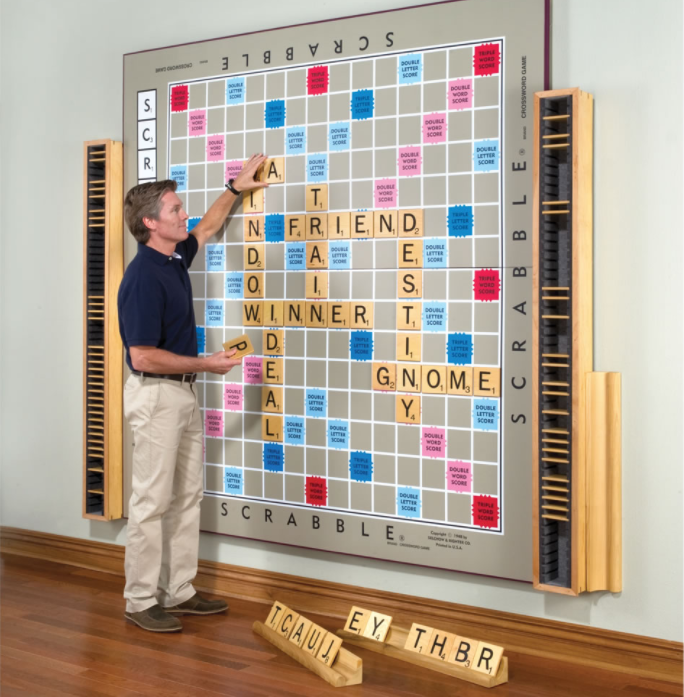
The more poignant motif uniting these men, though, is their solitude. Though real fathers would be eager to share their zany purchases with their family, the men of Hammacher Schlemmer are almost invariably alone with their toys. Scrabble is a game few people would enjoy alone, but the man absorbed in the World’s Largest Scrabble Game — at $12,000, surely an investment worth sharing — appears only to be playing himself. Even a rare exception to this isolation, the two men leaping and bouncing in the Human Pinball Suits, seem to enact an almost too-blunt allegory of the greater barriers that separate them: though their bulbous encasements collide, their truer selves remain trapped under layers of air and plastic. (The symbolism darkens further when we notice the men look nearly identical: twins, maybe — or two sides of the same man, slamming into himself.)

Of these men, only one makes no effort to smile: seated on a plane, with the Rechargeable Personal Air Purifier looped like a bolo tie around the collar of his beige Oxford shirt, he gazes quietly and pensively out the window, into the beyond. That he appears to be one of only two passengers — a shadowy figure (death?) lurks several rows behind him — on an otherwise empty commercial airliner only deepens this meditative mood. Far above and away from home, family, and work, he seems readier than the rest to confront and contemplate the abyss, albeit in the security of a private cloud of purified air.
We can guess what he might be thinking about. All of these products are profoundly useless. They meet unfelt needs, satisfy unknown desires. They require an alternate existence, another medium of being, for their pointless features to look purposeful. The drama — if you’ll let me call it that — of these images is the men’s lonely struggle for utility, for necessity, for purpose. It’s easy to see in their crinkled eyes and glinting smiles the burden of middle-age ennui, the toll taken by years of work, childrearing, mortgage payments, lawncare.
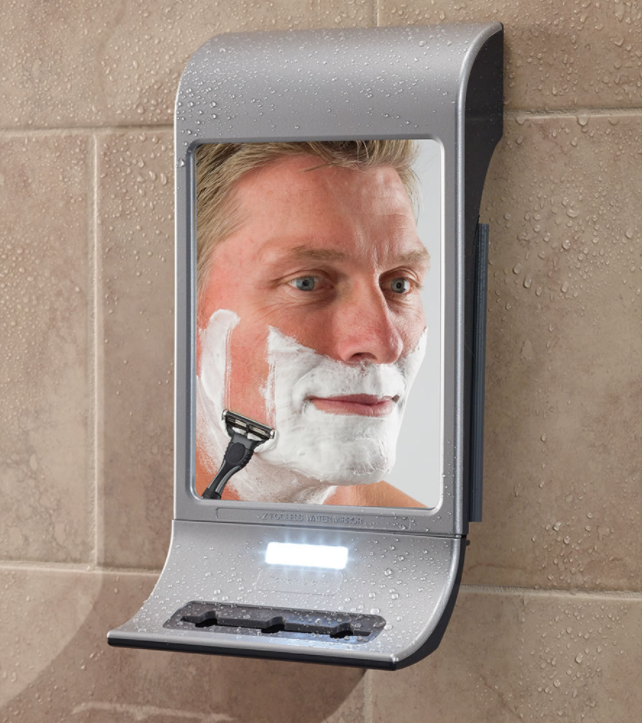
In the white voids, beige beds, and green backyards of this universe, the men of Hammacher Schlemmer confront not just their purchases, but themselves. (Sometimes, in the case of the Best Fog Free Mirror, literally.) Their private terror is the struggle to prove that they are not similarly useless, that they endure disappointment and insecurity, shell out $9,950 for the Climbing Wall Treadmill, in the name of a worthy and manly fight for fulfillment, family, fatherhood. The catalog copy only reinforces the masculine anxiety in these images: the Pepperphile’s Peppermill, for instance, “holds over 2-lbs. of peppercorns and towers over table centerpieces or double magnums of wine, conveying the peppercorn’s dominance over all other spices in your pantry.”
The Hammacher Schlemmer website includes an entire section labeled “The Only,” featuring products unavailable anywhere else: the Only Unkinkable Garden Hose, the Only Music Box Espresso Machine, the Only Seven Person Tricycle. Let’s take this all the way: these men live in the realm of The Only. Theirs is the soul-consuming masculinity of allegiance to self-control and self-invention, a drive for purpose, a search for an imagined utility, as infinite in possibility as it is empty of meaning. They are the Only Men.
Colin Vanderburg is a Brooklyn-based writer and an assistant editor at Monthly Review.
